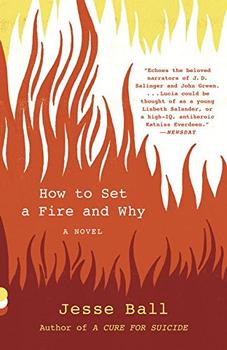 In How to Set a Fire and Why, Lucia claims to not remember exactly what occurred during an argument with her aunt's landlord, leaving her exact reasoning and motivation somewhat mysterious. In writing Lucia as an unreliable narrator, Jesse Ball draws from an established tradition.
In How to Set a Fire and Why, Lucia claims to not remember exactly what occurred during an argument with her aunt's landlord, leaving her exact reasoning and motivation somewhat mysterious. In writing Lucia as an unreliable narrator, Jesse Ball draws from an established tradition.
An unreliable narrator lies, expresses uncertainty or bias, or seems to have a misunderstanding of situations that occurred. The author may employ an unreliable narrator to intentionally mislead the reader or as a means of characterization. Part of the pleasure in encountering such a narrator is parsing out what is true and what is not. Teen and young adult narrators are some of the most obvious and well-known examples of the trope, and this makes logical sense. Adolescence is often a time of conflict, teenagers vacillate between uncertainty and confidence in their beliefs as they try to forge a concrete identity for themselves. They are often dishonest, caught as they are between childhood and adulthood, they push the limits, break the rules and lie to avoid punishment.